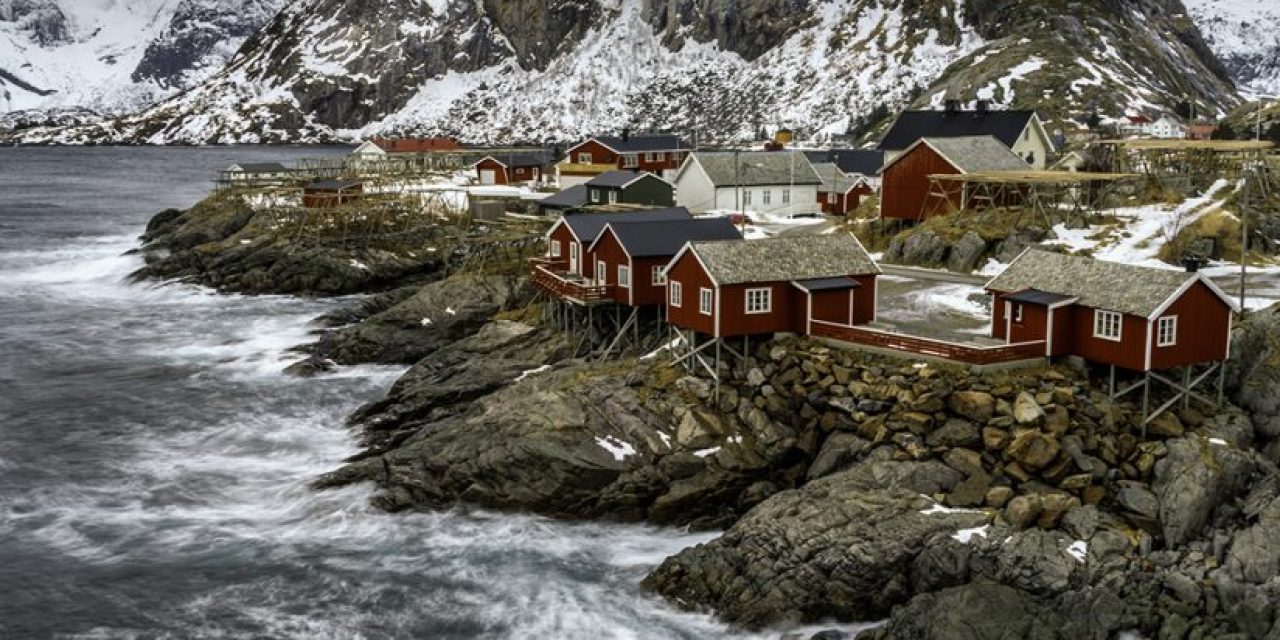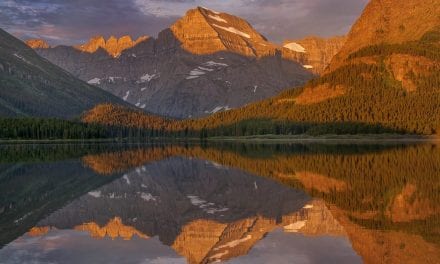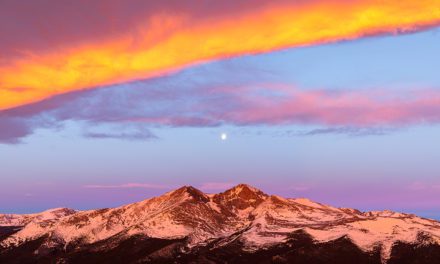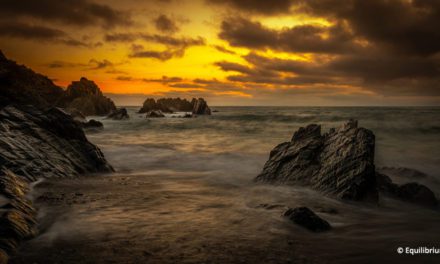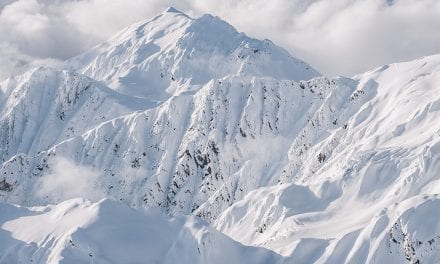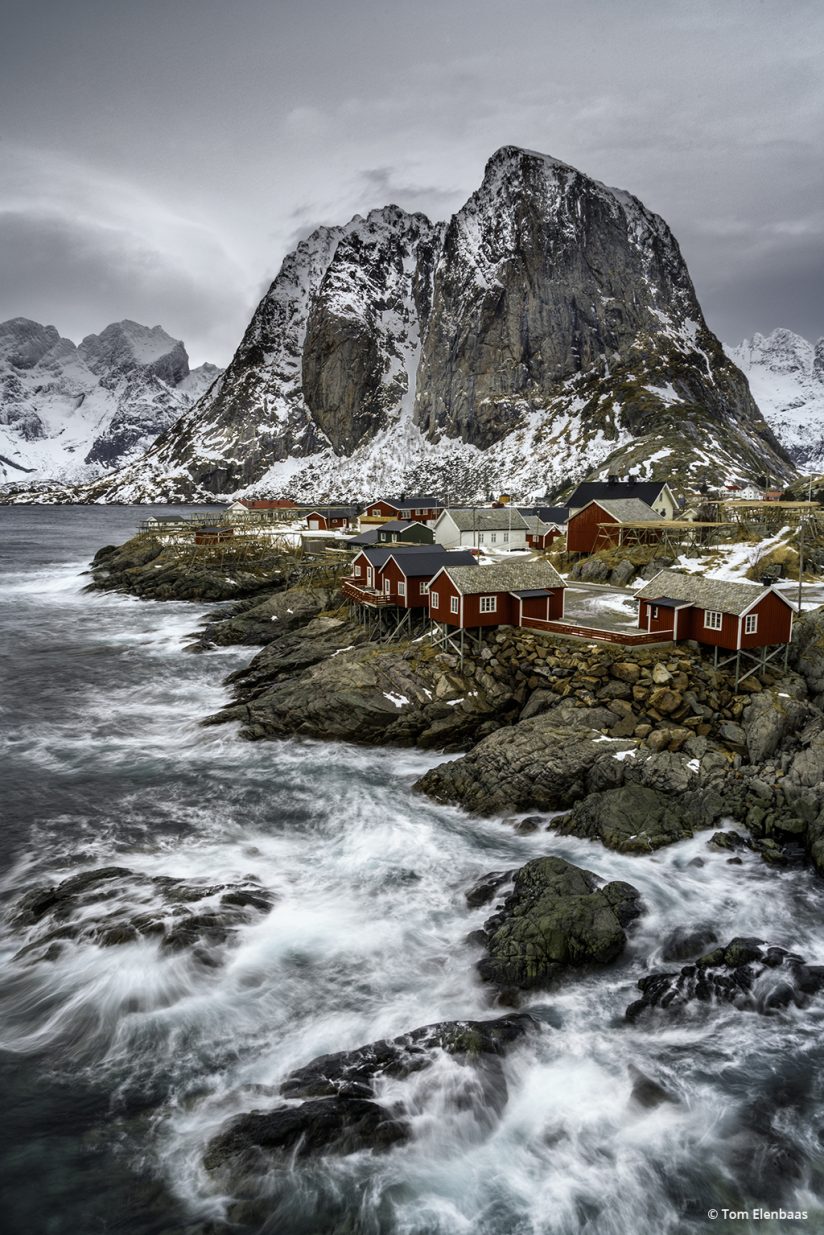
Lying above the Arctic Circle at the 68th and 69th parallels, the Lofoten Islands span the waters of the Norwegian Sea. Majestic mountain peaks tower over icy blue fjords and emerald green bays, creating many opportunities for a landscape photographer.
For more than a thousand years, fishermen have been coming to the Lofoten Islands by boat to catch and process cod. A single main highway now links the larger islands in the archipelago to the mainland, with bridges and tunnels stretching over and under expanses of sea, connecting the colorful small fishing villages that dot the countryside.
Being an attorney by vocation and a photographer by avocation, I prefer to go as part of an organized workshop whenever I visit a location I’m not familiar with. Traveling with professionals who know the lay of the land and being accompanied by like-minded individuals sharing a passion for photography helps me take full advantage of the photographic opportunities a place like the Lofoten Islands affords. A couple of years ago, I had the chance to spend a week in the Lofoten Islands as part of such a group.
One of the highlights of the trip was staying in Hamnøy, the oldest (and what some consider to be the most picturesque) fishing village in the archipelago. Hamnøy is located about a mile from Reine, the commercial center of the Lofoten Islands. But putting things into perspective, Reine has a population of only a little over 300, which shows just how unspoiled the Lofoten Islands remain.
Built right on the shoreline and sitting perched on stilts only a few feet above the crashing waves, most of the old fishing huts in Hamnøy, the Rorbu, have been converted to guest lodging. Historically, the Rorbu were painted with red fish-oil paint, and while some of the other villages in the Lofoten Islands have adopted different colors, such as the ochre buildings in Sakrisøy, the Rorbu in Hamnøy still retain their traditional red exteriors. Although they now possess modern amenities, staying in Hamnøy was an opportunity to get a glimpse of what life would have been like for Norway’s cod fisherman in the not-too-distant past.
One of the iconic shots nearly everyone who visits the Lofoten Islands takes, and for good reason, is of the red Rorbu of Hamnøy with the craggy face of Festhelltinden mountain as a backdrop. Literally walking distance from where we were staying, a bridge crosses the bay just outside the village and is the perfect place to set up your tripod. I opted for a vertical format, using the rocks in the foreground to anchor the image, and utilized a slow shutter speed to capture the movement of the swirling sea and cascading waves. Unfortunately, my neutral density filters were sitting on the kitchen table, so I had to stop down to a much smaller aperture than I’d normally use to achieve the desired shutter speed. A couple of days later, I had a chance to do the shot over, but the conditions weren’t the same. Despite a small amount of diffraction from the ƒ/22 aperture, this is the shot I prefer.
See more of Tom Elenbaas’s photography at tomelenbaas.com.
Sony a7R II, Sony FE 24-240mm f/3.5-6.3 OSS at 24mm. Exposure: 1.6 sec., ƒ/22, ISO 100.
The post Behind The Shot: Lofoten Islands appeared first on Outdoor Photographer.

